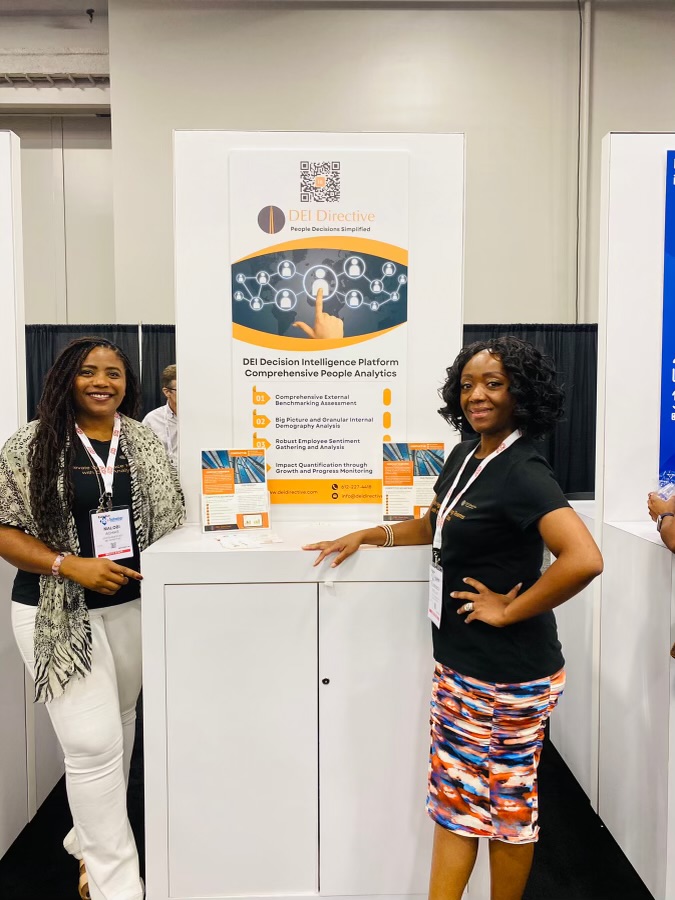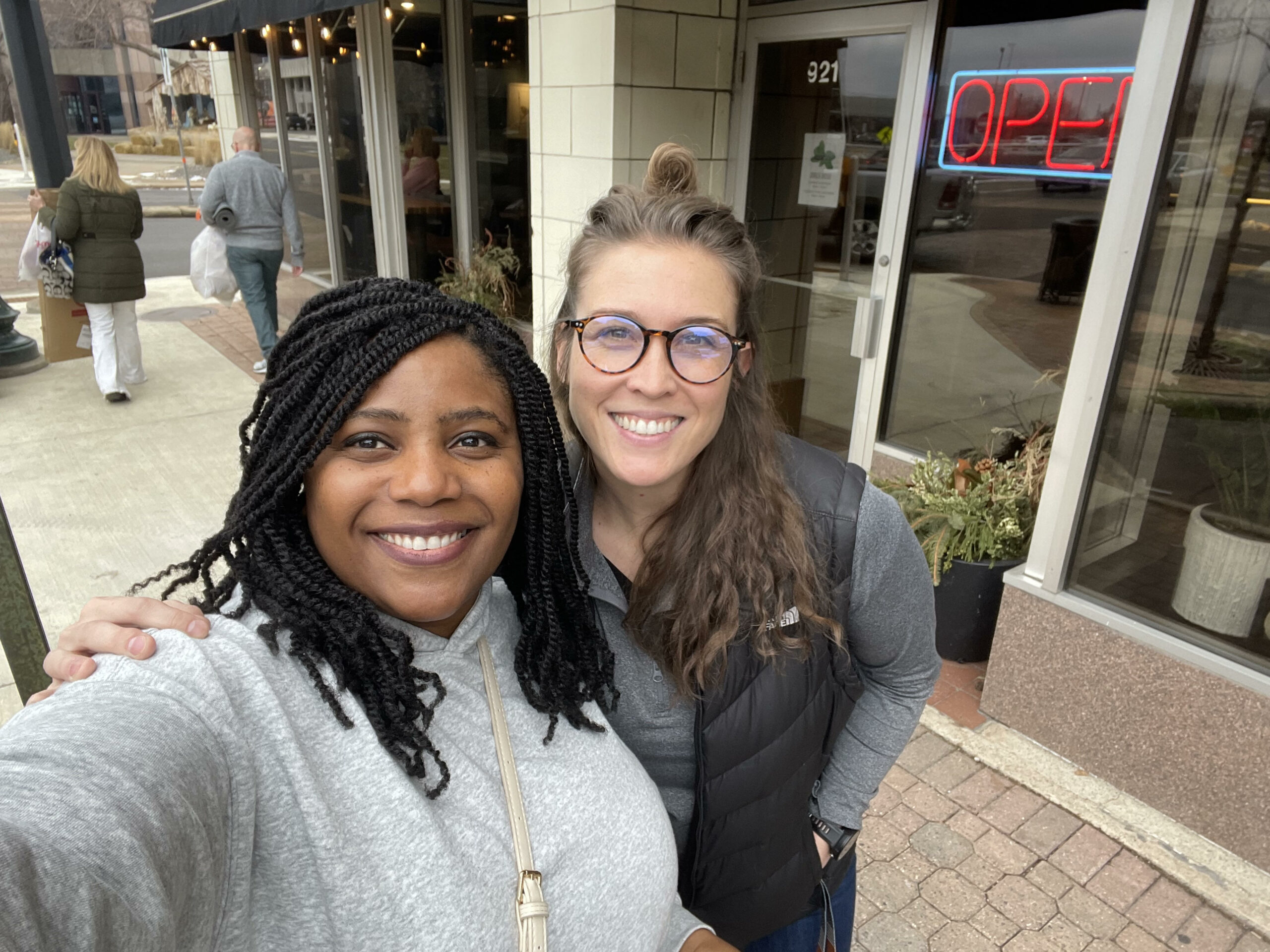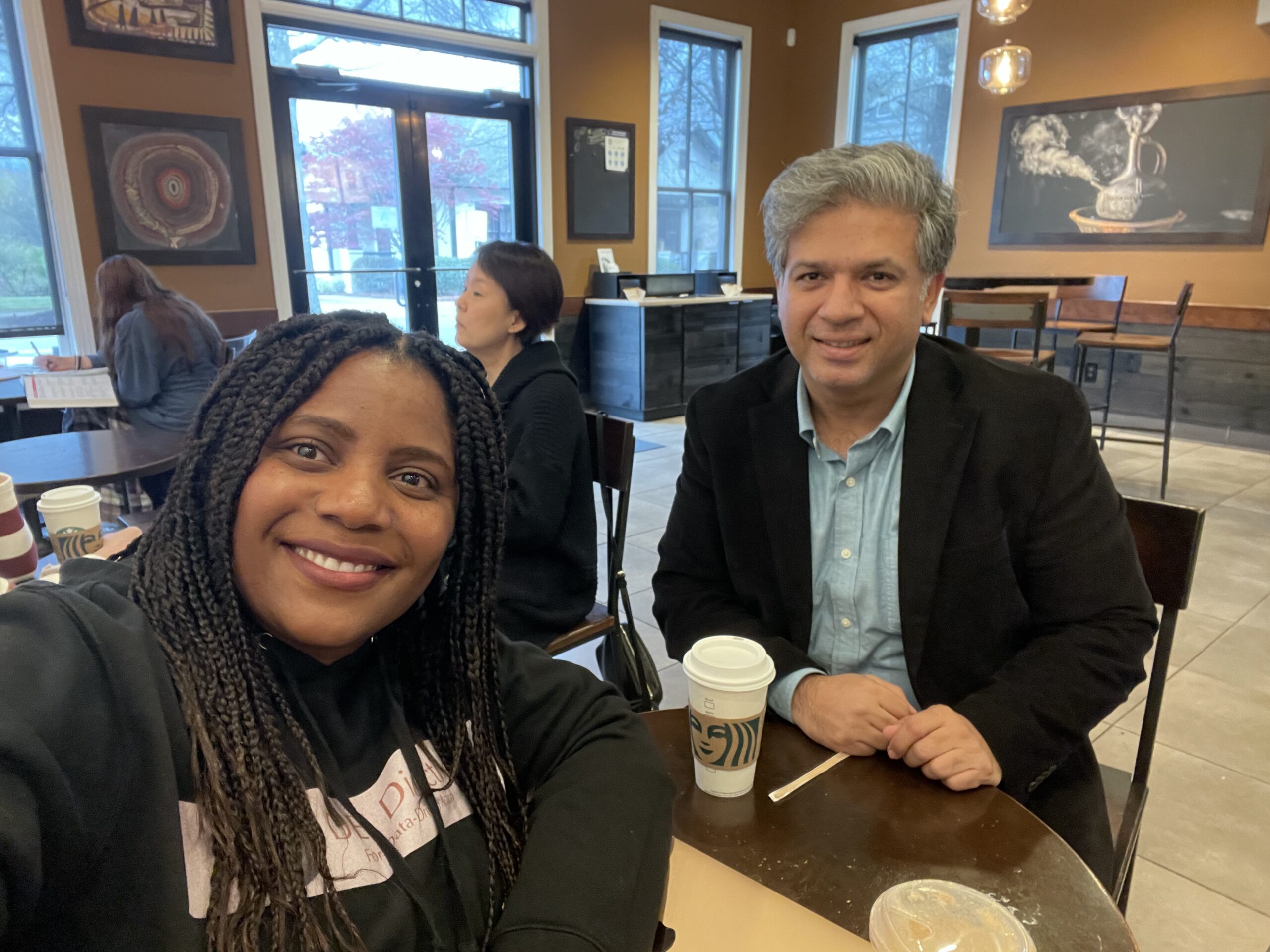Charlotte, NC
www.deidirective.com
DEI Directive provides an Inclusion Intelligence Platform that transforms how Human Resource and DEI professionals operate by providing real-time access to inclusive data, thereby eliminating guesswork. DEI Directive is a 2022 NC IDEA MICRO and 2023 NC IDEA SEED Grant Recipient.
Submitted by Malobi Achike, Esq.
Published February 2024

Having been born in Nigeria, raised in Malaysia, and later settling in Minnesota before relocating to North Carolina, my journey has given me a global perspective that shapes how I see the workplace. As a former immigration attorney, I always knew I wanted to make a difference to those around me. It was this same passion that fueled me during my 15 years in the legal technology sector. Fast forward to the COVID-19 pandemic, my husband and I found ourselves in very demanding careers. As parents of two, we knew that being in meetings all day would not be sustainable for our family unit. I then decided to step away from my job to focus on my family.
Within a week of me putting in my two-week notice, the tragic news of George Floyd’s murder spread all across America. As someone who called Minnesota home for many years, this struck a deeply personal chord. Following his tragic murder, we all witnessed the responses from corporations nationwide, and it was obvious to me that this simply didn’t go far enough and would ultimately yield little to no change. I saw the opportunity to pair my experience in the corporate and technology sector with my understanding of Diversity, Equity, and Inclusion (DEI) efforts to facilitate meaningful change within these organizations. Thus, the concept of DEI Directive was born. With the support of my family and friends, I embarked on early market research and connected with countless Chief Human Resource Officers. It became evident that there was a significant gap in the workplace that needed to be addressed.

During these conversations, I asked myself: what if DEI Directive helped organizations collect the data they needed? What if we helped them access the actionable data they need to better understand employee engagement and turnover, community and employee underutilization, as well as equity gaps in their practices and policies? So we set out to build our MVP (a Decision Intelligence Platform) that helps organizations establish a robust workforce data infrastructure (going beyond gender, race, and ethnicity to include veteran status, LGBTQ+ affiliation, and disability status, among many others). We also recognized how critical it was for organizations to have access to comprehensive data that tells the complete story – so that an organization can go beyond “50% of our workforce are women” to also gain deeper insights on their promotion rate, pay parity, and other critical insights that may pose legal risks for the organization.
By accessing all this information on our platform, the organization can make informed decisions about recruitment, retention, talent development, and take actions that mitigate inequities (in hiring, performance evaluations, promotions, compensation, and more, etc). This in turn allows the organization to allocate resources effectively, better mitigate legal risks, and ultimately innovation, productivity and its financial performance.
It’s impossible to talk about DEI without addressing the surge of misinformation and misunderstandings being spread currently. Many arguments against DEI operate on the false premise that organizations simply fill open positions with individuals from underrepresented groups, regardless of their qualifications. This is not reflective of how hiring managers actually make decisions. For example, if my company were recruiting for a marketing professional, I wouldn’t offer the role to someone without marketing experience because I would in essence have a new hire who cannot successfully execute the duties of the role. In reality, what is happening is that DEI-conscious organizations are broadening their recruitment strategies, and reaching out to underrepresented groups to inform them about available opportunities that they might otherwise not know exist, instead of relying only on traditional channels (which are often not inclusive). The objective is simple: to ensure that a wider range of individuals are included in the conversation and considered for roles.

When reflecting on my experience with NC IDEA, I am grateful because they have played a pivotal role in our journey to date. Before applying for the NC IDEA MICRO grant in 2022, I had already assembled my tech team that would build my MVP, but lacked the necessary capital to make it a reality. Being awarded the MICRO grant allowed me to bring my MVP to life. In the fall of 2023, we applied for the NC IDEA SEED grant when we were ready to ramp up our customer acquisition efforts. We were awarded the SEED grant and used those funds to hire salespeople, which strengthened our efforts to scale our customer base. Beyond the grants, the partnership and network that NC IDEA has provided have been invaluable.
As an entrepreneur based in North Carolina, I have noticed a significant gap in the support available for businesses navigating the intermediate stage between idea and multi-million-dollar revenue generation. While both ends have abundant resources, those in the middle often struggle with the support needed to continue growing. I think NC IDEA is one of the few organizations, if not the only, that is servicing founders at this stage. I am optimistic that we will continue our business in North Carolina and I know we will make a difference. This is a big year for us. With a dedicated team of 11 and a stabilized product, we are ready to scale. We are trying to reach levels that we haven’t reached before, but it’s exciting.
Charlotte, NC
www.deidirective.com
DEI Directive provides an Inclusion Intelligence Platform that transforms how Human Resource and DEI professionals operate by providing real-time access to inclusive data, thereby eliminating guesswork. DEI Directive was awarded the NC MICRO Grant in 2022 and the NC IDEA SEED Grant in 2023.
Submitted by Malobi Achike, Esq.
Published February 2024

Having been born in Nigeria, raised in Malaysia, and later settling in Minnesota before relocating to North Carolina, my journey has given me a global perspective that shapes how I see the workplace. As a former immigration attorney, I always knew I wanted to make a difference to those around me. It was this same passion that fueled me during my 15 years in the legal technology sector. Fast forward to the COVID-19 pandemic, my husband and I found ourselves in very demanding careers. As parents of two, we knew that being in meetings all day would not be sustainable for our family unit. I then decided to step away from my job to focus on my family.
Within a week of me putting in my two-week notice, the tragic news of George Floyd’s murder spread all across America. As someone who called Minnesota home for many years, this struck a deeply personal chord. Following his tragic murder, we all witnessed the responses from corporations nationwide, and it was obvious to me that this simply didn’t go far enough and would ultimately yield little to no change. I saw the opportunity to pair my experience in the corporate and technology sector with my understanding of Diversity, Equity, and Inclusion (DEI) efforts to facilitate meaningful change within these organizations. Thus, the concept of DEI Directive was born. With the support of my family and friends, I embarked on early market research and connected with countless Chief Human Resource Officers. It became evident that there was a significant gap in the workplace that needed to be addressed.

During these conversations, I asked myself: what if DEI Directive helped organizations collect the data they needed? What if we helped them access the actionable data they need to better understand employee engagement and turnover, community and employee underutilization, as well as equity gaps in their practices and policies? So we set out to build our MVP (a Decision Intelligence Platform) that helps organizations establish a robust workforce data infrastructure (going beyond gender, race, and ethnicity to include veteran status, LGBTQ+ affiliation, and disability status, among many others). We also recognized how critical it was for organizations to have access to comprehensive data that tells the complete story – so that an organization can go beyond “50% of our workforce are women” to also gain deeper insights on their promotion rate, pay parity, and other critical insights that may pose legal risks for the organization.
By accessing all this information on our platform, the organization can make informed decisions about recruitment, retention, talent development, and take actions that mitigate inequities (in hiring, performance evaluations, promotions, compensation, and more, etc). This in turn allows the organization to allocate resources effectively, better mitigate legal risks, and ultimately innovation, productivity and its financial performance.
It’s impossible to talk about DEI without addressing the surge of misinformation and misunderstandings being spread currently. Many arguments against DEI operate on the false premise that organizations simply fill open positions with individuals from underrepresented groups, regardless of their qualifications. This is not reflective of how hiring managers actually make decisions. For example, if my company were recruiting for a marketing professional, I wouldn’t offer the role to someone without marketing experience because I would in essence have a new hire who cannot successfully execute the duties of the role. In reality, what is happening is that DEI-conscious organizations are broadening their recruitment strategies, and reaching out to underrepresented groups to inform them about available opportunities that they might otherwise not know exist, instead of relying only on traditional channels (which are often not inclusive). The objective is simple: to ensure that a wider range of individuals are included in the conversation and considered for roles.

When reflecting on my experience with NC IDEA, I am grateful because they have played a pivotal role in our journey to date. Before applying for the NC IDEA MICRO grant in 2022, I had already assembled my tech team that would build my MVP, but lacked the necessary capital to make it a reality. Being awarded the MICRO grant allowed me to bring my MVP to life. In the fall of 2023, we applied for the NC IDEA SEED grant when we were ready to ramp up our customer acquisition efforts. We were awarded the SEED grant and used those funds to hire salespeople, which strengthened our efforts to scale our customer base. Beyond the grants, the partnership and network that NC IDEA has provided have been invaluable.
As an entrepreneur based in North Carolina, I have noticed a significant gap in the support available for businesses navigating the intermediate stage between idea and multi-million-dollar revenue generation. While both ends have abundant resources, those in the middle often struggle with the support needed to continue growing. I think NC IDEA is one of the few organizations, if not the only, that is servicing founders at this stage. I am optimistic that we will continue our business in North Carolina and I know we will make a difference. This is a big year for us. With a dedicated team of 11 and a stabilized product, we are ready to scale. We are trying to reach levels that we haven’t reached before, but it’s exciting.

